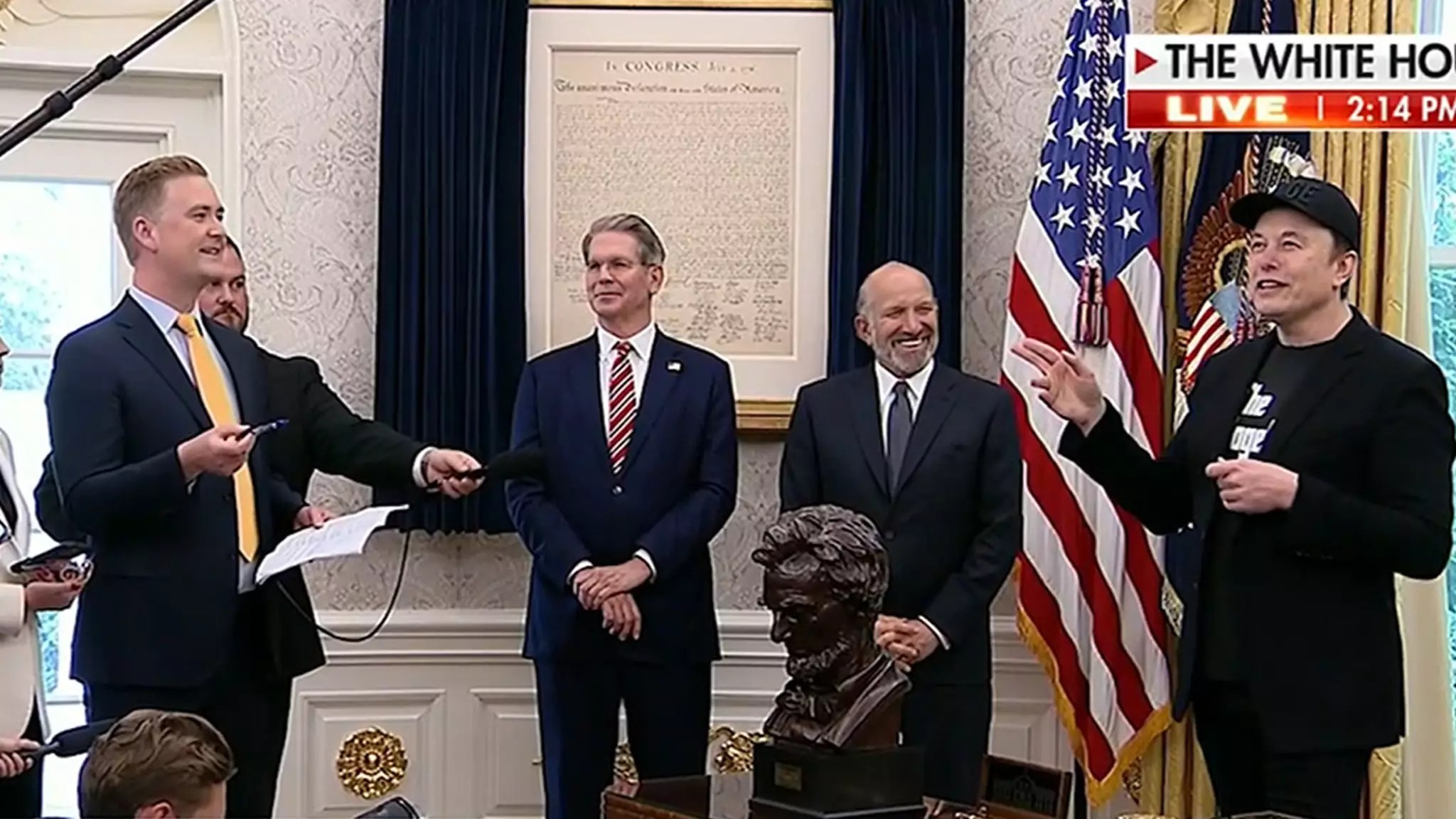In an era increasingly defined by public figures’ volatile relationships with the media, the latest spat between Elon Musk and The New York Times illustrates a fascinating case study in power dynamics and reputational warfare. Musk, known for his audacious personality and entrepreneurial ventures, is pitted against one of the most illustriously respected, yet contentious, publications in journalism. The recent confrontation unfolded at a farewell press conference in the Oval Office, signaling more than just a personal attack—this was Musk challenging the very foundations of media credibility.
Musk’s Response to Allegations
The controversy was ignited by a New York Times article alleging Musk’s abuse of drugs, including the powerful anesthetic ketamine and stimulants like Adderall. In his characteristic rebellious fashion, Musk dismissed the report, asserting that The Times lacks credibility. His rejection of their findings was more than a mere defense of himself; it struck at the core of the media’s responsibilities and the consequences when such allegations surface. The fact that Musk responded directly from the hallowed halls of government underscores the intertwined lives of moguls and the institutions of power they navigate, often clashing with their watchdogs.
Moreover, Musk’s critique extended beyond his personal experience; he aimed to paint The New York Times as unreliable by referencing its past, particularly the controversial reporting surrounding the “Russiagate” saga. By doing so, he framed the media as an institution that has erred and misled the public, further complicating journalistic integrity in the eyes of skeptics and followers alike. Musk articulated a narrative that questioned not only his own reputation but interrogated the revelatory credibility of journalism in the digital age.
The Implications of Musk’s Remarks
Musk’s statements echoed through the halls of social media, raising significant questions about how public perception is shaped in an era dominated by rapid information dissemination. With platforms like Twitter amplifying every utterance, the potential for disinformation and misunderstandings increases exponentially. In this context, Musk’s denouncement of The Times does more than character assassinates a single publication; it galvanizes support from the tech-savvy citizens who see Musk not just as a businessman, but as a larger-than-life figure challenging the status quo.
While Musk’s rhetoric may bolster his supporters’ views, one must also consider the ramifications of his distrust in established media. Are individuals who idolize such figures like Musk more inclined to disregard journalistic integrity altogether? The implications could lead to a broader societal trend where skepticism towards reputable media outlets becomes rampant, culminating in a breakdown of shared truths that are fundamental to democracy itself.
Legal Battles and Their Fallout
As the saga continues, it is worth noting that former President Donald Trump is engaged in a separate legal confrontation with the Pulitzer Prize Board, challenging the integrity of recognized journalism. In many ways, Musk’s comments fit into a larger narrative where high-profile figures rally against institutions that once held them to account. The intersection of Musk’s celebrity and Trump’s political maneuvers creates a fascinating, albeit troubling, tapestry of anti-establishment sentiment.
Musk’s remarks, amplified by his recent experience in government, signify a harbinger of changing times where personas and platforms redefine who we consider credible. This stands at odds with traditional measures of honesty and accountability in journalism, sowing seeds of division in an ecosystem already fraught with misinformation.
Undoubtedly, a perpetual question lingers: Who can we trust? As the media landscape evolves, so too must our understanding of information dissemination. Elon Musk’s fiery retorts against The New York Times reveal a deep-seated frustration in prominent figures who are wary of how narratives are shaped around them. Yet it also lays bare the quest for authenticity in reporting—a quest that must adapt to keep pace with an increasingly skeptical public.
In this ever-changing terrain, it is essential to remain vigilant, both as consumers of information and as critics of those who wield it. The debate ignited by Musk is not just about one man’s reputation; it touches the very essence of how stories are told, and whose voices get to shape them.







Leave a Reply